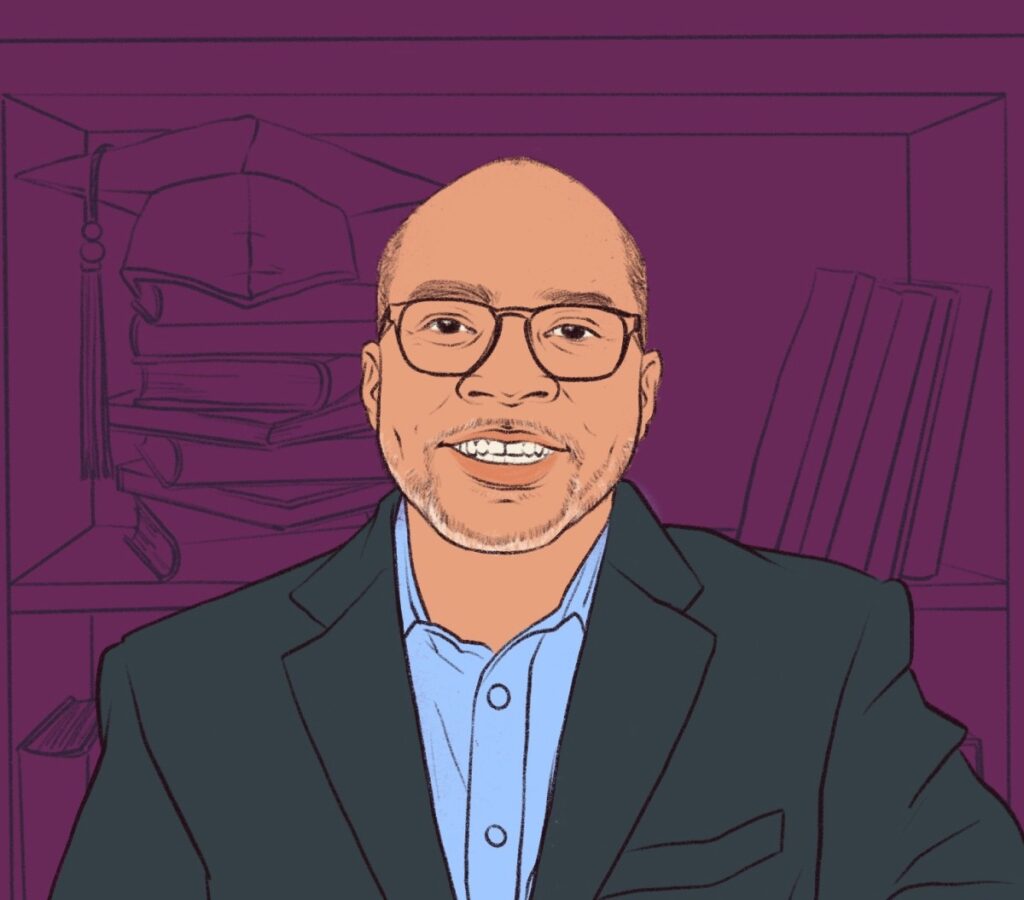While Cardell Orrin had not planned to become a social justice advocate, activism runs through his blood. Both his parents were education activists. His mother fought for high-quality schooling, and his father led Black Mondays—student walkouts in protest of the lack of African American school board members in Memphis.
After spending much of his childhood at school board meetings, marches and campaigning events, Orrin pursued a different path. He earned a computer science and engineering degree at the University of Pennsylvania and founded Linx Consulting, delivering services ranging from technology planning to strategy and community development.
Eventually, however, he was drawn back to his roots. Since 2014, when he became executive director for Stand for Children Tennessee, he has again been immersed in the world of advocacy.
Stand for Children is a national nonprofit that has expanded beyond its initial focus on educational equity to address interlinked issues that improve life for communities, such as youth justice, community safety and civic engagement. Its expansion into social and racial justice was based on recognizing that the organization could add value beyond education.
“We saw opportunities,” he says, “to take what we had learned in education and use that expertise and experience to support work in the justice space.”
This holistic approach is one reason the Kresge Foundation supports the work of Stand for Children Tennessee, including with a multi-year general operating support grant of $450,000 in 2024.
Coalition work is another. “We wanted to expand our impact and provide support not just for us but for other organizations,” says Orrin. The collaborative approach, he explains, is a way to “maximize resources and our capacity to achieve change.”
“We wanted to expand our impact and provide support not just for us but for other organizations.”
Cardell is a leader in Memphis’ organizing ecosystem. Stand for Children Tennessee joins and supports coalitions that bring diverse stakeholders and groups together to discuss and identify solutions and actions to address the interconnected issues impacting Memphis residents.
For example, Stand for Children Tennessee facilitates both the Justice and Safety Alliance and Memphis’s Moral Budget Coalition, which promote solutions for investing in people and community in city and county budgets. Both, says Orrin, harness the energy and capital of many organizations to maximize resources and the capacity for change.
Rather than tackling challenges in silos, the collaborative approach seeks lasting solutions to problems by seeing them as interconnected. Orrin cites safety. “We have a broader view of what safety is,” he says. “It’s not just safety from violence or criminal activity—it’s having housing security, food security and transit.”
“It’s not just safety from violence or criminal activity—it’s having housing security, food security and transit.”
While Orrin’s work is now focused on social impact, his tech background serves him well, particularly when he faces obstacles. That’s when his programming and engineering mindset kicks in, he says.
“From a programmer’s standpoint, I’m trying to get to a goal of a product that does a thing. There are steps to get there and bugs that get in the way, and I have to figure out a way to get around them,” he says. “From a practical standpoint, that helps me get along.”
And as he reflects on this moment’s challenges, he reminds himself to look toward the possibilities ahead. “Can we believe that the arc of the moral universe is bending toward justice?” he asks. “I always think back to civil rights activism and enslavement and the ability to see what is not your current reality and believe that’s something you can get to—that gives me strength.”


